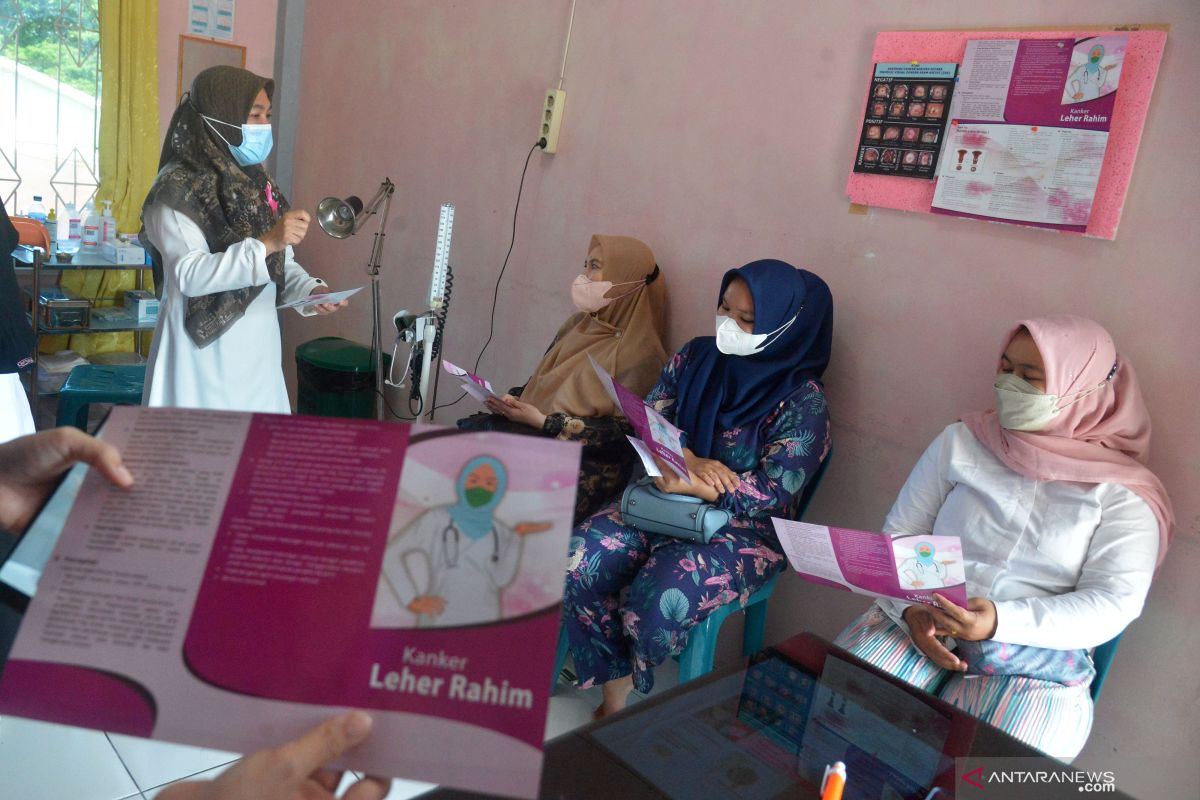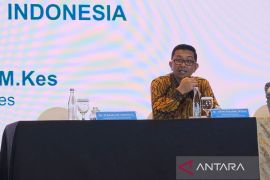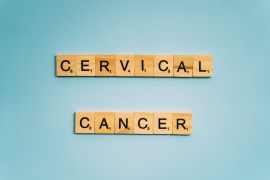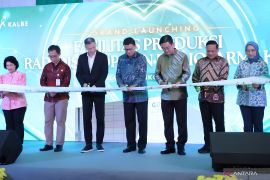Disease Prevention and Control Director General at the ministry Maxi Rein Rondonuwu stated that the risk of death due to cancer can be curbed through routine examination to detect it early.
Routine examination to detect cancer can reduce 30 to 40 percent risk of death due to cancer, he noted during an online press conference on Thursday.
He also remarked that breast cancer and cervical cancer are the types of cancer that frequently occur in Indonesia.
According to the government's data in 2020, some 65,858 cases of breast cancer and 36,633 cases of cervical cancer were recorded.
To reduce death due to cancer, the ministry implements the cervical cancer early detection program through visual inspection with acetic acid (VIA).
This program is undertaken for women in the age bracket of 30 to 50 years or women in sexual relationship.
Examination using the VIA method can be conducted once per year to look for possible symptoms of cervical cancer.
Moreover, a pap smear can be conducted to detect cervical cancer early. Pap Smear test can also be undertaken once every three years until the age of 65.
For this year, the minister tests the application of cervical cancer detection methods through the HPV DNA examination, specifically a procedure to detect the human papilloma virus infection.
"This latest method can use the PCR that we have. We are testing it this month in Jakarta," Rondonuwu stated.
Meanwhile, to detect breast cancer early, the government is campaigning for routine independent examination using breast self-examination, or the Sadari method, every month, he explained.
Sadari involves rubbing and checking for specific changes in breasts, such as the presence of lumps, thickening of skin, changes in breast size, and swelling of upper arms.
Moreover, breast cancer can be detected early through an ultrasound (USG) device at least once a year or through mammography and radiology examination to check for abnormalities that lead to cancer in the breast area.
Ultrasound examination service is already available at public health centers (puskesmas), while mammography service can be provided at hospitals.
The effort to detect cancer early is deemed crucial, given that handling the disease, with high risk of death, necessitates high costs.
Data from the National Healthcare and Social Security Agency (BPJS Kesehatan) in 2020 showed that handling patients with cancer can cost up to Rp3.5 trillion.
"In addition to cost, cancer also has a social impact. Many patients sold their wealth to cover the costs," Rondonuwu added.
Related news: Health Minister attends groundbreaking of Makassar Vertical Hospital
Related news: Bio Farma to launch kit for cervical cancer detection
Related news: Ministry provides aid for RSUDs, RSUPs to treat catastrophic diseases
Translator: Andi Firdaus, Fadhli Ruhman
Editor: Sri Haryati
Copyright © ANTARA 2023











